
Our Commitment to Diversity
It is a fundamental goal of our school and Waldorf education to bring students to an understanding and experience of our common humanity. Working within a multicultural curriculum, our faculty strive to reflect the diversity of our world in the classroom. This includes drawing upon the lived experiences and histories of the students in the class, as well as introducing practices, people, places, and ideas that may be less familiar.
As educators, we are committed to identifying, acknowledging, and unpacking our own biases. We strive to grapple with and overcome prejudice in all its forms. Our faculty work to cultivate a space of respect and provide a supportive and nourishing educational environment for all our students. As part of our commitment to inclusion, diversity, and equity, the school has formed the Waldorf Inclusion Diversity Equity Committee (WIDE). The goal of this committee is to support diversity, equity, and inclusion at every level of our communal life as a school. The WIDE Committee is open to all, and its leadership has faculty, board, and parent representation.
Waldorf education began as a single school over 100 years ago in Germany and has grown to more than 1,000 schools in over 70 countries. While the pedagogy evolved from the founder Rudolf Steiner’s writings, we, as a school, expressly reject and oppose Steiner’s early depictions of religious and racial hierarchy. Berkeley Rose Waldorf School is a member of the Association of Waldorf Schools of North America (AWSNA) and we stand together with the organization in upholding the critical importance of diversity, equity and inclusion and denouncing all statements or indications made by Rudolf Steiner that contradict those values. AWSNA’s Statement of Inclusion and Equity is as follows,
The Association of Waldorf Schools of North America recognizes the historic and ongoing impact of racism on our continent and the injustice and discrimination faced by Black, Indigenous and People of Color. We understand that inclusivity and equity is a journey of both moral and educational imperative. As such, we take seriously our responsibility to bear witness to what is happening in the world, to center the voices of color in racial justice work, to change the course of inequities, and to identify and break down structural racism in all forms where it exists, particularly in Waldorf education.
Waldorf education espouses principles of respect for human dignity. Any narratives or indications made by Rudolf Steiner that are in contradiction to these principles are not the basis for Waldorf education and we unequivocally denounce such statements.
We know that we have far to go as an association and as individuals in our understanding of racial oppression and social justice. Advancing the principles of diversity, equity and inclusion (DEI) is one of the compelling forces behind AWSNA’s strategic priorities. These priorities make equity and inclusion central to our work and aim to bring us closer to the world that we want for our youth.
In honoring individuals and building community, we’d like to express our clear and unwavering support of our LGBTQ+ and gender diverse students, staff and family members. By this we mean all people deserve to feel welcome at the school, including those who identify as LGBTQ and those who come from LGBTQ+ families. We understand that LGBTQ+ inclusion and visibility benefits us all by fostering our ability to empathize, connect, and collaborate as a diverse community, encouraging respect for all.
The Waldorf School movement is not part of any religious institution. Admission to the Berkeley Rose Waldorf School is open to everyone, without regard to race, gender, sexuality, religion, national origin, or ethnicity. We acknowledge that as a private institution, there are barriers that can prevent families from accessing our school. Our goal is to work with families to make the school accessible; over half of families at Berkeley Rose receive some level of financial aid. With an eye on social and cultural obstacles, through investigation, action and outreach, we hope to continually grow our school to reflect and integrate with our greater community.

Jahlia Osha
Rosebud Nursery Lead Teacher
Jahlia is a graduate of the Early Childhood Waldorf Teacher Training at Steiner House, London. She has taught in Waldorf Parent-Child, Preschool, and Kindergarten settings. Jahlia holds a BA from Pitzer College of the Claremont Colleges in California and a Masters Degree from the London School of Economics. She is a child of two long-time Waldorf teachers and a Waldorf graduate (K-12 Summerfield Waldorf School and Farm in Sonoma County). She has lived in England for 11 years and is a mother of two children. Prior to Waldorf teaching she worked in documentary film and charitable giving.

Julia Wild
Rosebud Nursery Assistant Teacher
A native of New Zealand, Julia was fortunate enough to be acquainted with Waldorf education from a young age. Having learnt a fond love of sewing and crafting from her early childhood education in a Waldorf school she has been committed to a lifetime of craft and adventure. During her youth she regularly helped out at her parent’s organic shop where she developed a love for helping others find healing through food and natural remedies. Her enthusiasm for travel and adventure has taken her around the world, from living in Italy to Australia to the Bay Area. Having graduated from the New Zealand Institute of Fashion Technology, Julia has been dressmaking and designing clothes since she was a teenager and developed her own fashion line after moving to Berkeley, inspired by the colorful fashion of the past that can still be found in the second hand stores in the Bay Area. Her love of Waldorf education, passion for helping others and enthusiasm for creativity in all forms inspired her to join Berkeley Rose where she looks forward to contributing to the enrichment of children’s lives.
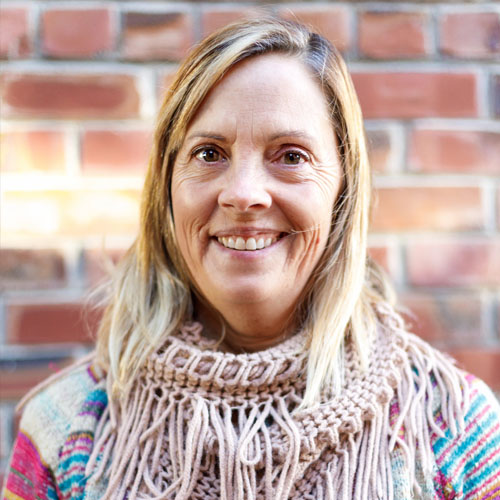
Nico Rease
Sunflower Kindergarten Lead Teacher
Nico Rease worked with children in the public school realm for eight years as a Kindergarten teacher and in curriculum-design for the gardening program at Salmon Creek Elementary School. She recently worked as the Kindergarten Aftercare Lead teacher at Summerfield Waldorf School and was an assistant in the Kindergarten at the Sebastopol Charter School in 2017. She came to us in the fall of 2019 as the Sunflower Kindergarten Assistant Teacher and the Kindergarten After School Teacher. She is a graduate of the Bay Area Center for Waldorf Teacher Training. Nico is also the founder and director of Wild Wisdom Ways, a rites of passage program for mothers and daughters.
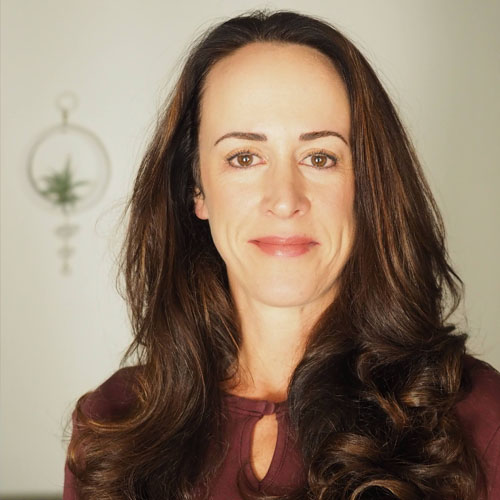
Victoria Palmisano Klocek
Dandelion Kindergarten Lead Teacher
Victoria graduated from the University of Texas at Austin with a B.S. in Communications and a minor in Business. In 2008, she graduated from the Waldorf Teacher Training Program at the Rudolf Steiner College. After receiving her Waldorf certification she taught in the Kindergarten at the San Francisco Waldorf School and at Morning Glory Nursery School. Victoria has been involved in the Berkeley Rose community since 2012 when she enrolled her son in the parent/toddler class and has been an active participant ever since. She is delighted to now be teaching in the Kindergarten. Previous to becoming a Waldorf teacher, she spent 10 years in marketing and product development. When not in the classroom, she finds joy spending time with her two children, dancing, hiking, gardening and practicing qi gong.

Cheryl Chan
Dandelion Kindergarten Assistant Teacher
Cheryl is currently in her third year of teacher training at Bay Area Center for Waldorf Teacher Training and holds a BFA degree with high honors from California College of the Arts. She has previously taught gardening in Oakland public schools, nannied several children, and is a volunteer youth project leader through Alameda county 4-H through which she teaches textile arts, poultry rearing, and food preservation. As a member of the Anthroposophical Society in America, she is dedicated to Steiner’s vision of renewal in education and delighted to guide her students. Cheryl is a California native who has lived in the East Bay for over 20 years and is a mother to two children, the oldest of whom is a BRWS student (class of 2026). When she’s not teaching, she enjoys baking sourdough, tending to her urban homestead, drawing, knitting, sewing, and hiking in the redwoods.

To be announced
Kindergarten After School Teacher

To be announced
Sunflower Kindergarten Assistant Teacher

Carlos Cadena
Marigold Nursery Assistant & After School Teacher
Carlos joined Berkeley Rose in 2019 as the grades after school lead teacher. Prior to his return to the Bay Area, he was at the Brooklyn Waldorf School and an events coordinator for the NYC branch of the Anthroposophical Society. During his time there he was inspired by the creativity he saw in Waldorf pedagogy and the welcomed feeling of community. He is currently attending the Bay Area Center for Waldorf Teacher Training, as he continues his studies in education. In his free time, he enjoys reading about archaeology, tending to his succulent garden and camping in the great outdoors.
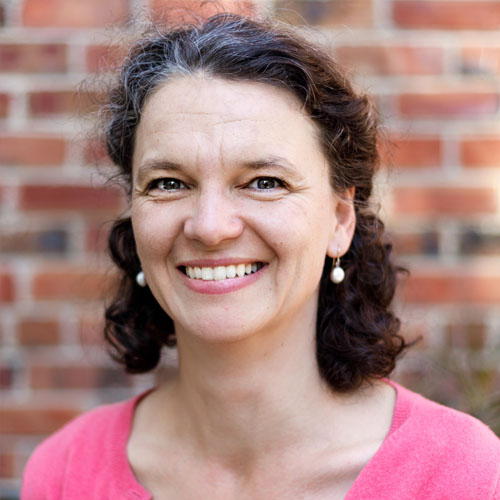
Vasilica Vascu Hall
Faculty Chair & Eurythmy Teacher
A native of Romania, Vasilica received her eurythmy diploma from Akademie fur Eurythmische Kunst, in Dornach, Switzerland, followed by a post graduate diploma from the Eurythmy School Spring Valley, as well as completing her education in early childhood development courses. From 2001-2007 she taught eurythmy in grades 5-12 at Garden City Waldorf School, Long Island, NY. In the Bay Area Center for Waldorf Teacher Training, she teaches weekend eurythmy classes in all 3 years. Vasilica has been with the school since it’s start in 2009, first as a parent and early childhood teacher and now as our Faculty Chair. Through out all these years continuing to teach Eurythmy to our children.
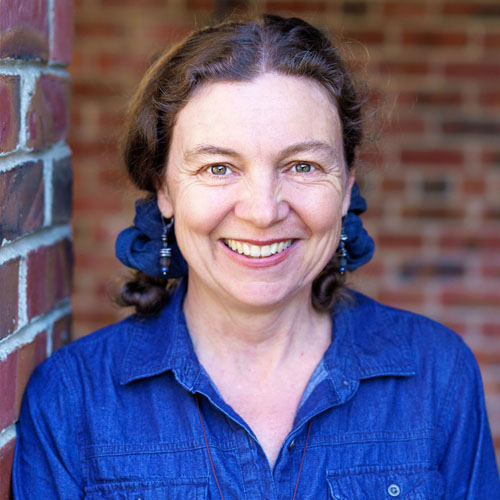
Jessica Prentice
School Director
Jessica graduated from Brown University in 1991, where her studies and work focused on education and social justice, especially for immigrants and refugees. In 2006 Jessica published Full Moon Feast: Food and the Hunger for Connection, a book which mythopoetically explores the connections between the environment, human communities, and traditional cycles through food. That same year, she co-created The Local Foods Wheel and co-founded Three Stone Hearth, a local food business dedicated to sustainability, nourishment, and community. Her work at Three Stone Hearth led to a deep interest in organizational development and collaborative leadership. In 2009 Jessica became a mother, and discovered Waldorf Education when she took parent-child classes at Berkeley Rose. As a parent at the school she has been immensely impressed with the developmental pedagogy Rudolph Steiner introduced, which has led to a deep interest in Anthroposophy.

Robert Schorlemmer
Finance Chair
Robert Schorlemmer is the Treasurer and Director of Finance at Berkeley Rose. Robert studied physics and finance in Munich, Tokyo and Berkeley. He is also a Waldorf teacher training graduate (Bay Area Center for Waldorf Teaching Training). Robert worked as a CPA for Ernst & Young across the United States. With Black & Decker, he carried out audits in Europe and the Americas. He also served as a lecturer and foreign expert in China. In his spare time, Robert runs a small nonprofit that supports a village in Colombia, South America. Robert was born in Barcelona and grew up in Rome and Hamburg. He speaks seven languages.
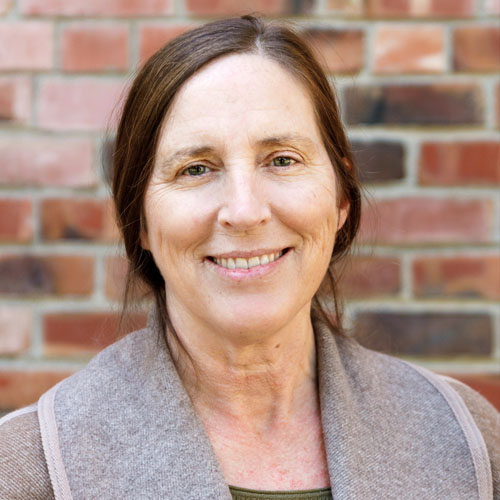
Karen Hunt
Enrollment Coordinator
Karen comes to us from work as a stay-at-home parent and long-time volunteer within many charitable organizations in the United States and abroad. She has always held an active role within her local community and has especially enjoyed leadership roles within each of the schools that her three children have attended, including the Waldorf School in Whistler, BC. Karen has lived internationally in London, Canada, Singapore, Malaysia, Taiwan and the Philippines. In Manila, she worked with a Moving Specialist Company that worked exclusively with newly arriving expatriate families providing them with local tours and lectures of Filipino customs and culture. She holds a BS in Business Administration from Cal State Chico. Karen loves being in nature, playing tennis, and is learning to master the French language.
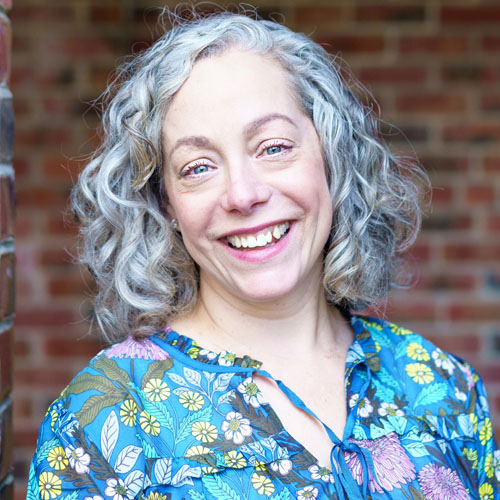
Kim Knittel
Outreach Coordinator
Kim and her family found Berkeley Rose in 2012 after moving to the Bay Area from Brooklyn, NY. She studied English literature and film studies at Smith College, receiving a B.A., and did further studies in film at New York University. She held parallel jobs in independent feature film production offices and as a waiter, assistant sommelier and floor manager at three star restaurants in Manhattan, and at Chez Panisse here in Berkeley. She also ran the production office of a small television commercial production company where she held many roles. She has been trained as a Bach Flower Essence therapist and is passionate about making flower essence remedies for friends and family. She also loves to bake, and specializes in accommodating food allergies. Kim has two children at Berkeley Rose and began working in the Administration in 2017.
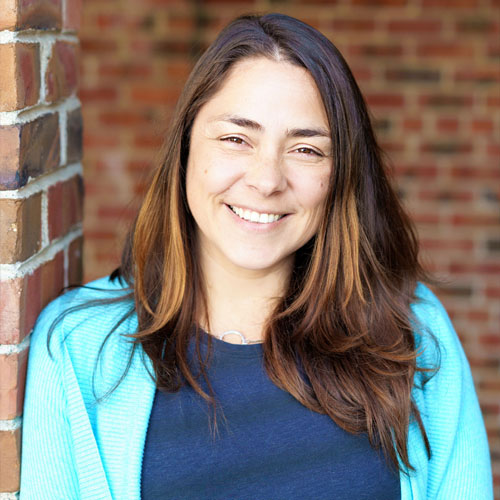
Anaolga Macnaughton
Information Specialist
Born in Guatemala, Anaolga and her family moved to Canada when she was 11 years old. Soon after their move, they discovered Waldorf. After graduating from the Vancouver Waldorf School, she became an animator. Years later, she received her diploma in business management systems and returned to the animation field, this time as a production manager. Life then took her to New York where she worked as a free-lance graphic and web-designer. She has been a parent at Berkeley Rose since 2013, loves nature, cooking and working with her hands.
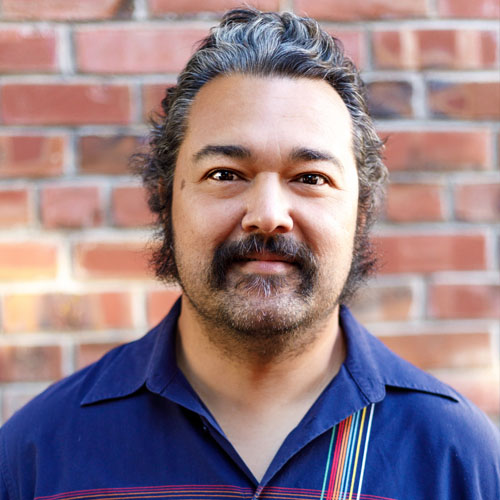
Adam Pagle
Facility Caretaker
Bio coming soon.
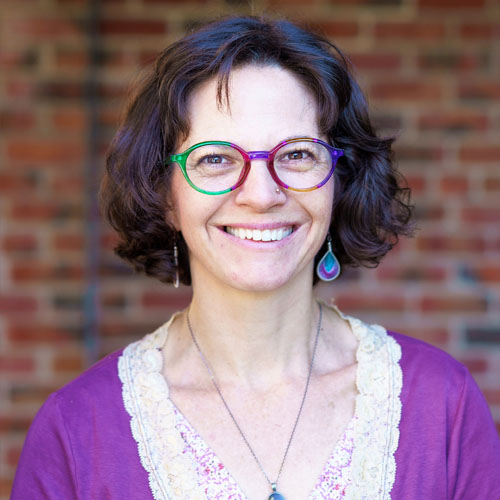
Maria del Mar Damany
Spanish Teacher
Señora Damany joined Berkeley Rose in 2018. She brings her native Argentinean culture and 14 years of experience teaching in Waldorf schools – including many years in Phoenix, Arizona, and more recently at Singing Stones in Walnut Creek, CA. She is passionate about world languages and the impact that being multilingual has in fostering world peace. Her curative education training and her childhood musical repertoire of traditional songs come into play in every lesson. Señora Damany has 4 children spanning in ages from 5 to 19 years old. She enjoys going on outings and learning things with her family, painting, and baking fresh sourdough bread every week.
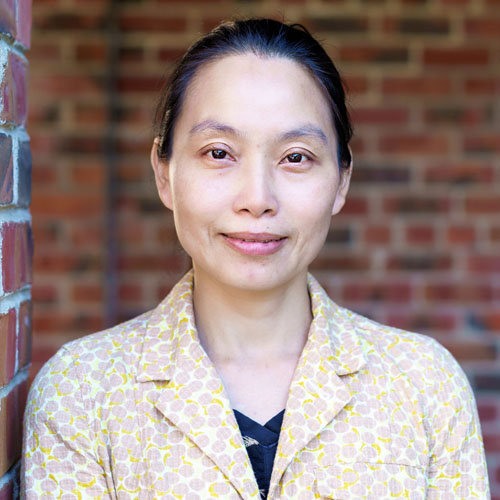
Xia (Joy) Chen
Mandarin Teacher
Joy was raised and educated in China and is fluent in all aspects of Mandarin. She has been teaching Chinese privately for many years and is married with two wonderful, bilingual children. Joy likes to continuously learn and enjoys teaching many aspects of Chinese culture, such as stories, games, poetry, calligraphy, food, herbs, traditional medicine, acupressure, and music. Joy has been working at Berkeley Rose since 2015.

Henri Ducharme
Middle School Math Teacher
Henri has taught mathematics for nearly twenty years; working with advanced students in private and homeschool classes, as well as teaching after school classes in chess, computer programming, and engineering. Two decades ago he was the music teacher at both Marin Waldorf School and Novato Charter Waldorf, and came to be the Eighth grade class teacher at Novato. Henri’s work has intertwined three careers; as a teacher, musician and carpenter. Having studied accordion from age five, as an adult he came to direct the ensembles for several folk dance companies that specialize in the music of Eastern Europe and Russia. More recently he designed and restored his Victorian home in West Oakland. His spiritual practice has led through mystical currents within Catholicism, Buddhism, and Quakerism. He has a B.A. in Mathematics from Oberlin College.

Michael Simpson
Middle School Games Teacher
Mr. Simpson joined Berkeley Rose in 2018 as the Upper Grades games teacher. He has 20 years of teaching experience with a BS in Exercise Physiology from California State University, and is also a certified member of several professional organizations such as American Council of Exercise (ACE), International Dance and Exercise Association (IDEA) Certified Fitness Trainer. Striving to make PE inclusive and FUN for all students Michael believes that through physical play students can develop successful life skills such as concentration, cooperation, self-esteem, imagination and relaxation as well as conflict resolution skills. I love to create the “Joy of Sports” and see the star in every child. As a PE teacher Mr. Simpson provides a safe environment for children to work on their skills and develop socially as well as physically active lifestyle.
When Mr. Simpson is not teaching PE classes, he enjoys playing USTA competitive tennis, his own work outs, traveling, cooking and spending time with his wife Jenneke and their two adult children Noah and Maya.
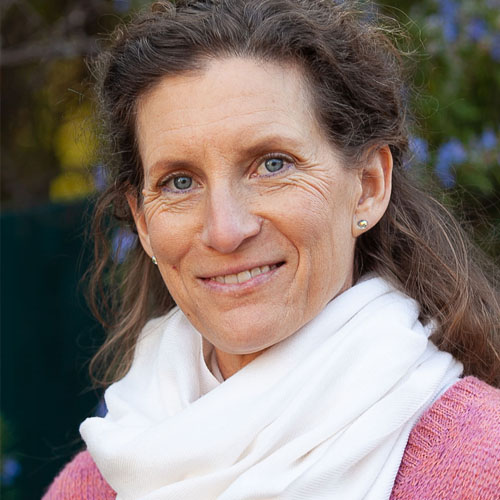
Karen Gallagher
Middle School Eurythmy Teacher
Karen Gallagher crossed paths with eurythmy and Waldorf education in Costa Rica in 1998 at a non-Waldorf School, La Escuela Europea. The tiny seed planted there would wait ten years before sprouting. In 2008, Karen pursued formal eurythmy training at Eurythmy Spring Valley, NY and graduated in 2014. A BA degree was earned in 2015, through the eurythmy school in Oslo, Norway.
Since 2014 Karen has been traveling as a freelance eurythmist to academic and anthroposophic communities in the U.S. and Latin America, bringing eurythmy to children and adults. She has ties with Waldorf schools in Puerto Rico and Costa Rica and teaches eurythmy each summer at the annual Waldorf Teacher training at the Centro de Desarrollo Antroposófico in Cuernavaca, Mexico. Participating in the growth of Waldorf Education through private, public charter, and international school communities, has opened new perspectives on the development and furtherance of eurythmy in the world. This, in turn, has deepened Karen’s conviction that Waldorf education provides a viable approach to building resilient, active social communities in an age weighed down with technology and electronic media.
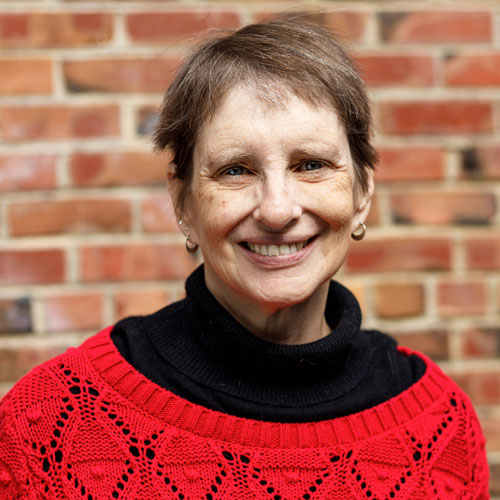
Betsy London
Elementary School Strings Teacher
Betsy London grew up in Oakland and studied the viola with David Smiley, before moving to Los Angeles and attending UCLA. There she played with the Pasadena Symphony. She continued her studies in Boston under George Neikrug and in 1977 attended the Berkshire Music Festival where she played under Ozawa, Bernstein, Tennstedt and Schuller, as well as a young Michael Morgan. For five years she lived in Italy, playing with groups including the Bologna Teatro Communale, Macerata and Jesi Opera orchestras. After returning to the Bay Area she completed her B.A. in Psychology at Cal. State Hayward and has co-authored a paper in neuro-psychology. Currently she plays in Marin Symphony as well as Oakland Symphony, Fremont Symphony, Diablo Opera, The California Symphony, and the Reno Philharmonic. In 1998 Ms London toured the U. S. for two months with Eric Clapton, and has an extensive collection of floaty pens which she started accumulating while on that adventure.
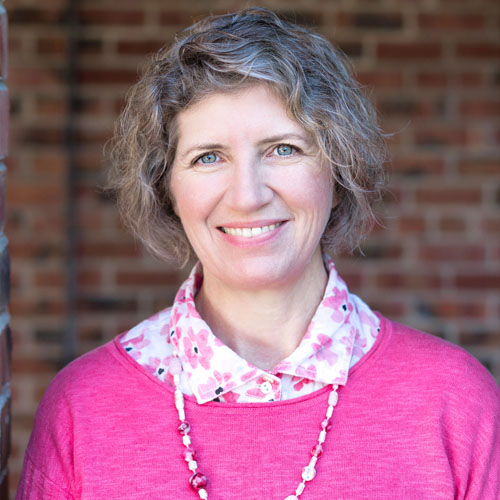
Cybèle D’Ambrosio
Middle School Violin & Orchestra Teacher
A native of Berkeley, Cybèle studied violin with Anne Crowden, David Dalton and David Abel. She holds Bachelors and Masters degrees in music performance from Brigham Young University and Mills College. While living in Italy for seven years, she taught violin and chamber music at the Accademia Musicale Mediterranea in Leporano. She now runs her own private teaching studio in North Berkeley, performs with local orchestral groups, and composes music for small ensembles. She recently collaborated with the Central Works Theater Company to compose, arrange and perform the musical score for their production of “The Yellow Wallpaper.” She currently serves as the Solo Competition Chair of the San Francisco section of the American String Teachers Association and was honored to receive their national Kudos award in May 2015. Cybèle has been working at Berkeley Rose since 2014.
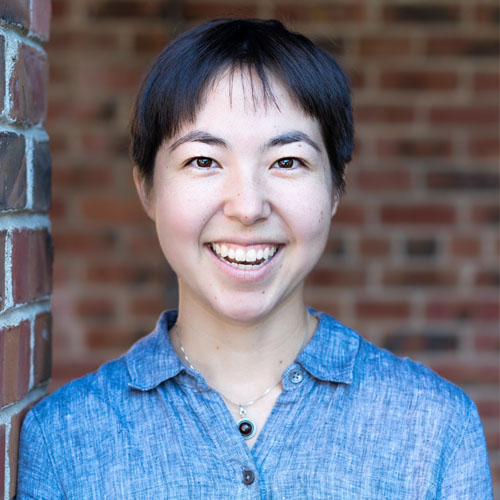
Masumi Maei
Elementary School Music Teacher
Masumi Maei Hayashi-Smith graduated from Brown University where she spent three years as a board member of the student opera production company and directed a fully orchestrated production of Cristoph Willibald Gluck’s “Orpheo ed Euridice.” After college, she took a break from classical music doing education research in Sri Lanka on a Fulbright grant, and living in Bali. Upon re-entry to the United States, she began the Kodály Masters program at Holy Names University. Masumi teaches classes for 4-5 year olds at Vivace Youth Chorus in San Jose, teaches private voice and musicianship lessons at her home, and sings in the choir for St. Lukes Episcopal Church in Los Gatos. Masumi has been working at Berkeley Rose since 2015.
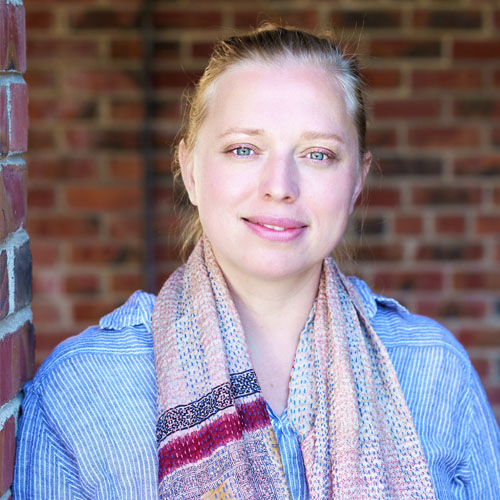
Natalya Logunova
Handwork Teacher
Natalya comes to us from the New York fashion and costume-making scene. A Parsons School of Design grad, she worked at Ralph Lauren and Met Opera before launching De Plume, a high-end girls dress line in 2007. As her focus shifted to organically and fair-trade produced children’s wear, the mother of two girls discovered Steiner’s teachings. She is currently completing the Applied Arts program for Waldorf handwork teachers at the Fibercraft Studio, Sunbridge Institute, NY. As an avid sustainability advocate she plant-dyes yarns for our students and is pleased to offer Garment Upcycling and Handwork classes to all Berkeley Rose parenting adults.

Avram Sklare
Middle School Woodworking Teacher
Bio coming soon.

Carlos Cadena
After School Teacher
Bio coming soon.

Chris Ferreira
Elementary School Eurythmy Accompanist
Bio coming soon.

name ?
Middle School Eurythmy Accompanist
Bio coming soon.

Momo Sakai
First Grade Teacher
Momo Sakai comes to Berkeley Rose as a class teacher in 2020, after being a grades assistant at San Francisco Waldorf School while completing three years at the Bay Area Center for Waldorf Teacher Training. Momo received her BA from Occidental College in Religious Studies, allowing her to study in Istanbul and in Rome. She grew up in the East Bay speaking Japanese at home and learning to play the piano from her mother, who was the piano accompanist at the East Bay Waldorf School. Alongside teaching, Momo enjoys cooking, gardening, reading, and going on walks in the hills.
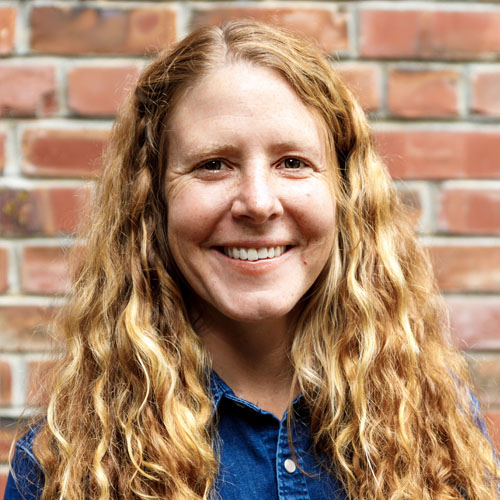
Sydney Borstel
Second Grade Teacher
Sydney Borstel received her Waldorf teacher training in both Cuernavaca, Mexico, and San Francisco. After years of working in a myriad of different educational philosophies and schools, she found a home in the Waldorf pedagogy. Sydney received a BA in psychology from the University of San Francisco and her public school certification from San Diego State University. Her international life experiences, having lived, studied, and taught in various Latin American countries and raising bilingual and bicultural children, yields an authentic multicultural lens in her approach to Waldorf education.

Remedios Loosli
Third Grade Teacher
Remedios received a BA in English Literature and Vocal Performance in Opera from Pepperdine University. He is a graduate of Le Cordon Bleu and a graduate of the West Coast Institute where he received his Waldorf Teaching Credential. An alumni of the Highland Hall Waldorf School in Northridge CA, where he attended 1st through 12th grade, he is a child to two Waldorf music teachers. He has worked in the corporate retail world, as an entrepreneur/owner of a catering company and as a music and classroom teacher at both the Summerfield Waldorf School and the Woodland Star Waldorf Charter in Sonoma County. He is excited and deeply honored to be a teacher at Berkeley Rose and is looking forward to taking his class through to the 8th grade.
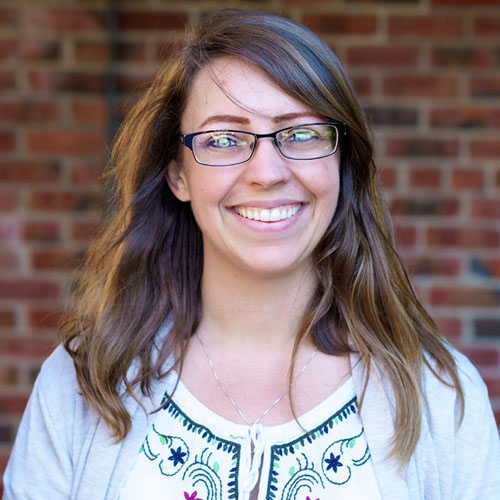
Tracy Petroski
Fourth Grade Teacher
Tracy has been with Berkeley Rose since 2015, starting as the Games teacher, Afternoon Program teacher, and go-to substitute while she completed her teacher training. A graduate from the Bay Area Center for Teacher Training, she was the Steiner scholar which allowed her to apprentice and observe in all the classes at our school and in other Waldorf schools in the area.
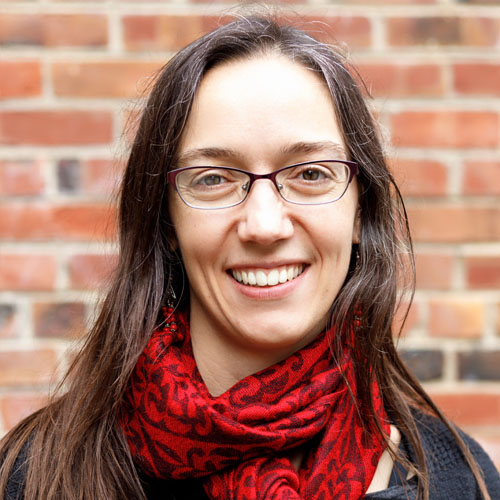
Evangeline Wolfe
Fifth Grade Teacher
Evangeline has followed the growth of Berkeley Rose with fondness since the beginning. She first started with the school in its earliest home on Rose St., where she was an aftercare teacher while completing her training at the Bay Area Center for Waldorf Teacher Training. Evangeline is a Waldorf graduate herself, and has taught kindergarten and grades at established Waldorf schools from the East Coast to the West Coast. She is an accomplished concert musician, and will, no doubt, take this class’s deep interest in music to a whole new level!

Sean Chiki
Sixth Grade Teacher
Sean Chiki grew up in the rust-belt region of southwest Pennsylvania. He attended the Art Institute of Pittsburgh and began working, immediately after that, as a commercial artist. Becoming disenchanted with the commercial art world, Sean practiced a variety of professions before settling into his role as class teacher, including illustrator, cartoonist, window-dresser, musician, theater sound-designer, bookseller and even – for a short time – mailman. Sean came to Waldorf through his reading of Steiner and his appreciation of the artistic and imaginative character of the Waldorf educational method, and has taught in the upper grades since 2015. He has a fondness for the rascals and tricksters of myth and history… his favorite may be Alcibiades of Classical Athens. When not wearing his teacher hat, Sean continues his work as a professional cartoonist. His first graphic novel (co-created with his wife) is forthcoming from First Second.
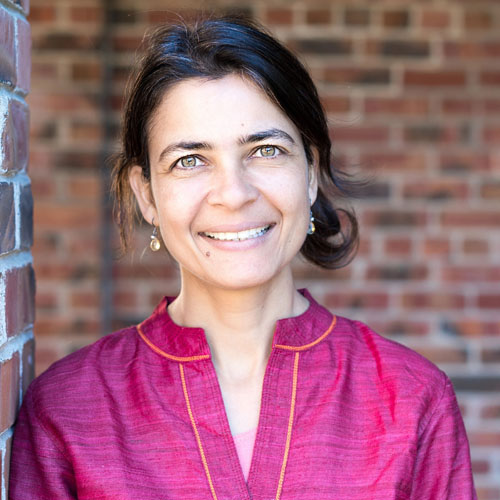
Aparajita Zutshi
Seventh Grade Teacher
Aparajita has known many of the children in this class since her daughter was their classmate in Kindergarten. When Aparajita found Waldorf Education she enrolled her two daughters at Berkeley Rose and, along with her sister, started a Waldorf school in Delhi, India. Ukti Waldorf school continues to flourish with her help and guidance. Aparajita is an accomplished academic with a masters and a doctorate in Economics. As she helped bring Waldorf Education to her children and many children in India, she began to yearn for this education for herself. So, she enrolled in and graduated from the Bay Area Center for Waldorf Teacher training. The growth and benefits received from this education has enabled her to join an amazing group of students and to guide them on their journey through 8th grade.
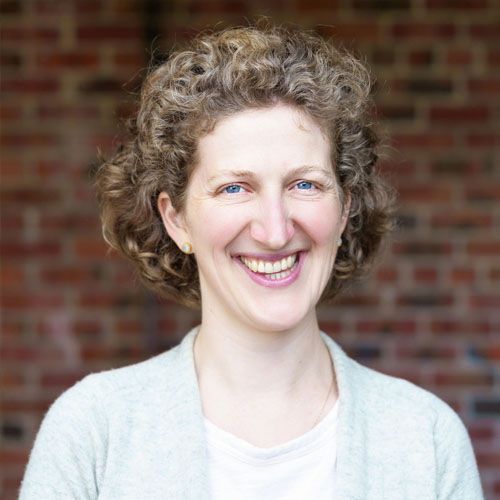
Elisa Saltet
Eighth Grade Teacher
Elisa Saltet came to Berkeley Rose as a class teacher in 2018. She has been a Waldorf teacher in grades First through Fifth, a Math tutor and a cello teacher. She received her Waldorf teaching credential from BACWTT (the Bay Area Center for Waldorf Teacher Training). She also received her BA from Oberlin College, where she majored in Environmental Studies and also studied cello at the Oberlin Conservatory. Elisa has been connected to Anthroposophy and Waldorf eduction her whole life, first in Massachusetts as a Waldorf student and child of two Waldorf teacher parents, later as a Biodynamic agriculture apprentice in Spring Valley, NY, and since 2010 as a member of the Waldorf community in the Bay Area. Along with engaging in this work, Elisa loves to play the cello, sing, learn languages, hike, swim, garden and cook. Past adventures include summers at Greenwood chamber music camp in Massachusetts, teaching English as a foreign language in France, and building hiking trails around Lake Baikal in Siberia. Elisa is happy and thankful to be a member of the Berkeley Rose faculty as class teacher.
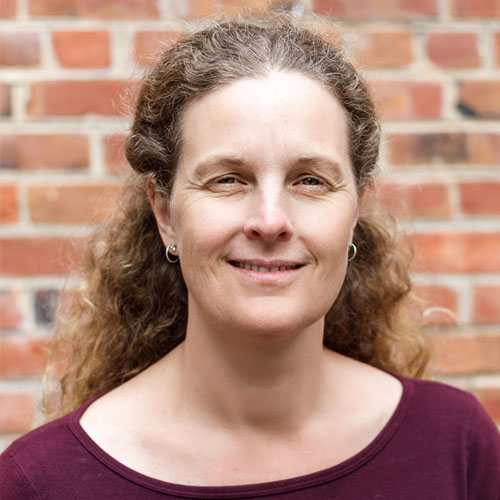
Megan Coleman
Marigold Nursery Lead Teacher
Before joining our school as a parent in 2013, Megan worked as an Administrator helping to start Nevada Sage Waldorf School in Reno, NV. A graduate of the Bay Area Center for Teacher Training, Megan began her journey in our school as the Rosebud assistant, then moved up to kindergarten. The following year she was the school’s substitute teacher extraordinaire and then took on the responsibility as the Administrative Chair. Teacher Megan brings a depth of experience, education and dedication to the children she will be caring for and nurturing. Megan has been working at Berkeley Rose since 2014.

Stefan Klocek
Board President
Stefan is a digital product designer who leads a user experience design team at Google. He’s worked in design and technology for over 15 years, developing an expertise in solving complex design challenges, producing products which are simple and effective for humans to use. He’s designed innovative solutions in the realms of healthcare, tech infrastructure, and finance. Stefan balances his work with hands-on wood craft in his shop, and spending time outdoors with his wife and two children. Stefan went K-12 grade at the Sacramento Waldorf School. He has a son in 1st grade, and a daughter in preschool at Berkeley Rose.
stefan@berkeleyrose.org or cell 415.999.2600

Amy Vitarelli
Board Vice President
Amy is a Commercial Insurance Broker by trade and assists with risk management including insurance, human resources and legal matters. Prior to entering the insurance industry in 2002, Amy worked for a national consulting firm and in the technology field for several years, working on domestic and international projects. Amy has Bachelor’s Degrees in Economics and Environmental Studies from Mills College, Oakland. Amy attended the Sacramento Waldorf School from grades 4-12.

Masha Kalinowski
Board Treasurer
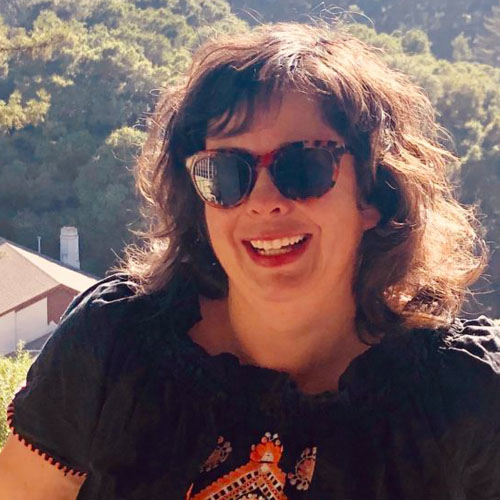
Ann van Zyl
Board Secretary
Ann is originally from South Africa and has found herself in the Bay Area by way of London, a brief stint in the Netherlands and a longer one in New York and the tristate area. She has lectured and taught English literature and language at four universities across two continents – Rhodes University in South Africa, the University of Reading in the UK, the University of Maastricht in the Netherlands and University College London. In New York, Ann worked briefly as a development editor of English Language textbooks at Cambridge University Press. Ann is delighted to have discovered Waldorf education and the Berkeley Rose Waldorf School in particular. In her spare time, if she is not walking among the eucalyptus or redwood trees, she can usually be found adapting a Nigella Lawson recipe or attempting to read a few lines of the Complete Works of Blaise Pascal in French.

Sarah Romanow Briand
Parent
Sarah Briand has been a parent at Berkeley Rose since her oldest child started at the school in its second year. Through her work on the Site Search Committee, she has been involved in all aspects of the school’s three locations since it moved from a home-based program to an independent school. She was instrumental in the development of the first BRWS Parent Council where she served for two years. She joined the Board in 2014. She works as a midwife at a community health center in the East Bay, where she enjoys working with women and teaching the next generation of midwives.

James Johnson
Parent
James Johnson is an independent 3D sound designer providing consultation and production services for film, stage, theme parks, museums, and music productions. Previously, James worked in the fields of renewable energy, conservation, and healthy building design. James currently serves on the BRWS facilities committee with an eye towards health and sustainability. He is involved with various fundraising and community outreach efforts for the school. When not chasing around his partner and their school-age daughter, he has also been known to clean a few Berkeley Rose Waldorf School windows.

Steven Tritto
Parent
Steven is a stay at home father with a background in Performance, holding an MA and MFA in related fields. He has worked as a theatre teacher, producer, and director throughout the Bay Area, most recently working with Clown Lab SF. He has also worked in an arts program with adults with developmental disabilities. Steven and his daughter started with the parent-toddler classes at Berkeley Rose, through which he was introduced to this incredible community. Steven is currently participating in the Bay Area Waldorf Teacher Training program. In his spare time he bakes bread, rides bikes, and performs with his mobile clown punk rock band Donut Goat.

Nathan Sendan
Parent
Bio and Picture to come.


